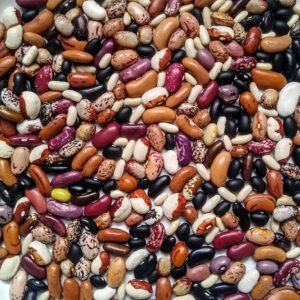
Dear OSA reader,
As I watch OSA grow and evolve, refining our programs and addressing our mission, I realize we’re reaching a transformative phase where our work is having a true impact on the state of organic seed. After seven years of working with OSA I’ve recently moved into the position of Executive Director. As a mother of a toddler I can’t help but reflect on how quickly we all grow up and the importance of nurturing that growth. I sometimes feel OSA is also a living entity growing out of adolescence and into a mature organization. As ED I recognize the importance of nurturing the organization’s growth and the value of dedicated staff that embody our mission. I’m proud to share with you some of our recent accomplishments, new projects, and future potential as well as introduce our new staff members.
In the early phase of OSA’s formation we held a visioning session to direct the new organization. We assessed what issues needed to be addressed, what skills we held, what other organizations were already doing, who our allies were, and from that assessment what work we should be focused on. We decided that day that Advocacy was urgently needed, but that we must first root ourselves in Research and Education where our skills were in high demand and our services unique. Once our work in the field was established then we’d have a stronger voice to advocate for farmers rights and address ethical issues related to seed. We’ve earned that voice and it is my pleasure to watch our Advocacy Program speak out.
This year our Advocacy Program led by OSA founder, Matthew Dillon, conducted the first national assessment of the State of Organic Seed. A report of results will be released this summer. We’ve also expanded our Advocacy team with the addition of Kristina Hubbard, who brings extensive experience addressing issues related to contamination and consolidation in the seed industry.
Our work in the field continues to grow locally and nationally as we develop improved varieties and increase farmers’ access to field-based information on organic seed. This year we helped launch the Northern Vegetable Improvement Collaborative (NOVIC). We’re creating an online database of organic variety trial results. We’re teaching farmers on-farm seed growing and variety improvement skills. Most days our plant breeder Dr. John Navazio spends his time in the field breeding carrots, spinach and other crops and conducting on-farm organic variety trials. Through our advisory services, now led by Dan Hobbs, our former ED, we’re helping build the skills and infrastructure for seed growers to succeed economically. In our own backyard, in partnership with WSU, we’re partnering on seed-related projects with 11 farms in Jefferson County and the three surrounding Counties, Clallam, Island and Thurston. Each of these efforts is contributing to a new era where farmers have secure access to healthy, organic seed; seed which is essential for our food communities to thrive.
I invite you to read on about our work, join us at a summer seed workshop or field day, and support the ethical stewardship of seed with a donation to OSA today.
Live well,
Micaela Colley
